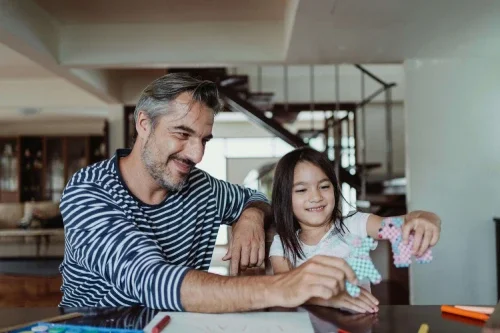How Play Therapy Works: The Science Behind the Fun
Play isn't just fun and games for kids; it's a crucial emotional outlet. Through play, children can be creative, adapt to changes, solve problems, and connect with others. It's a vibrant playground for their imaginations to roam free, offering them a safe place to try new things and make discoveries. Often, kids struggle to express their emotions with words, but through play, they can communicate complex feelings and thoughts, which is immensely beneficial for their mental health.
In play therapy, children are given a safe haven filled with toys, games, and art supplies. Here, therapists watch and gently interact with them, allowing kids to lead the way. This non-directive approach helps children feel supported, fostering a secure environment to explore feelings and process experiences.
Understanding Play Therapy: The Science Behind the Fun
Play therapy is more than just child's play; it's a strategic, research-backed approach. Imagine children navigating their emotions through toys rather than words. Since young children might struggle with verbal expression, play therapy steps in as a bridge, allowing them to convey feelings they might not fully comprehend yet. This form of expression is powerful in reducing anxiety, anger, and frustration.
Cognitive and Social Development Benefits
Ever noticed how play can spark creativity? In play therapy, it goes further. Children enhance their problem-solving and decision-making skills. Plus, through structured interaction, they learn vital social skills like sharing and effective communication. It's a holistic approach, nurturing not just emotional, but cognitive growth.
Behavioral Regulation Through Play
Structured play isn't just fun; it's a discipline builder. Kids learn to control impulses and regulate emotions, essential tools for managing behaviors. For those battling psychosocial challenges, play therapy provides relief, addressing emotional pain while equipping them for a brighter emotional and social future.
Enhancing Emotional Expression
Imagine trying to describe a whirlwind of emotions when words fail you. That's where play therapy shines. For kids, toys become tools, and play becomes the language. Through this engaging medium, children can express their innermost fears, frustrations, and anxieties in a safe and supportive environment. This non-verbal outlet allows them to articulate feelings they might not yet have the words for, helping caregivers and therapists understand their emotional world better.
Building Resilience
Life throws challenges at us all, and for children, these can feel monumental. Play therapy acts as a rehearsal space for life, where kids learn vital coping strategies. By navigating scenarios through play, they develop resilience, equipping them with the skills to confront and adapt to life's ups and downs. These guided playful interactions foster a sense of empowerment and confidence, laying the groundwork for a resilient future.
Role of a Therapist
A trained play therapist isn't merely a watcher on the sidelines. They're a guide, leading children on a journey through the therapeutic world of play. Using their specialized training, they dive deep to assess a child's emotional and behavioral needs. This is more than just playing; it's understanding the nuances behind every action and reaction.
Selecting Effective Techniques
With a toolbox full of techniques, therapists carefully choose methods that resonate best with each child. Whether it's art, sand, or imaginative play, each activity serves a purpose. These methods gently encourage emotional expression, helping children unveil layers of self-awareness that might otherwise remain hidden.
Supporting the Whole Family
A therapist also provides valuable feedback and support to parents and caregivers. By equipping adults with insights and tools, they help reinforce the healing process at home, ensuring that the benefits of play therapy ripple outward, transforming not just the child but their entire environment.
By engaging in play therapy, children not only find a voice for their emotions but also build the mental fortitude necessary for overcoming life's hurdles. Book our child counseling session today to learn more.

